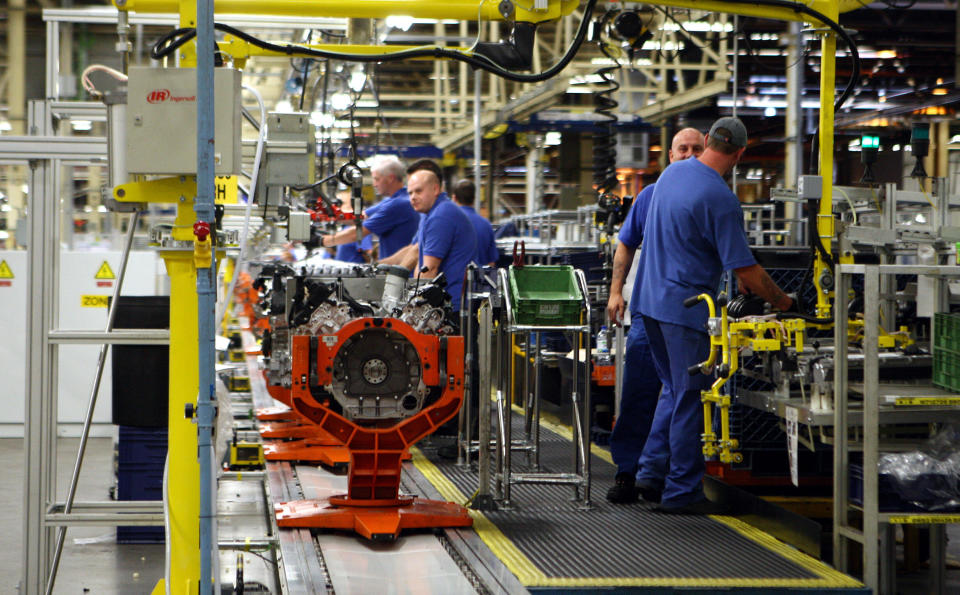Ford to close Wales plant in September 2020, risking 1,700 jobs

Ford will close its Bridgend engine plant in Wales in September 2020, with the potential loss of around 1,700 jobs, the company confirmed on Thursday.
In a statement, Ford blamed the ending of a contract with Jaguar Land Rover and a fall in sales of petrol engines. It said the factory faced a “cost disadvantage” compared to its other plants.
Speaking on Thursday afternoon, the president of Ford Europe, Stuart Rowley, said that the decision was not related to Brexit.
“The simple way to think of that is: if Brexit had never happened, would there be a different decision? And the answer to that is no,” he said.
The factory has been under threat because of falling demand for the two engines it makes, and lower projections for the Dragon engine it is scheduled to start making this year.
READ MORE: Ford boss says Bridgend closure 'has nothing to do with Brexit'
Around 400 of the job losses are expected to go before the end of 2019, as part of a voluntary redundancy programme announced earlier this year.
Meanwhile, a Ford employee with direct knowledge of the situation said that, while a number of people will be redeployed to other plants in the UK, all of the plant’s jobs were at risk.
They noted that fewer than 1,600 of the 1,700 employees at the site were permanent staff, and that they would be offered “significant” financial packages.
Ford said that the proposed closure would cost it $650m (£510m), with approximately $400m (£314m) going towards “separation and termination payments for employees.”
In a statement, GMB Union organiser Jeff Beck said that the news was “a real hammer blow for the Welsh economy and the community in Bridgend.”
“Regardless of today’s announcement GMB will continue to work with Ford, our sister unions and the Welsh Government to find a solution to the issue and mitigate the effects of this devastating news.”

Len McCluskey, the head of Unite the union, called Ford’s decision a “grotesque act of economic betrayal.”
“We will resist this closure with all our might, and call upon the governments at the Welsh Assembly and Westminster to join us to save this plant, and to prevent yet another grave injury to UK manufacturing.”
Speaking on BBC radio earlier, Welsh economy minister Ken Skates said that his government would immediately deploy a task force “to help the workers find alternative work and help the wider food chain” if the factory was closed.
A January announcement that almost 1,000 jobs would be cut at the Bridgend plant by 2020 had already been considered by unions as tantamount to a closure of the plant.
Hundreds more people are employed in businesses that supply the plant, which has been manufacturing engines in Wales for 40 years.
Ford’s presence in Bridgend makes it one of the largest employers in the South Wales region.

The news comes at a difficult time for the UK car industry. In February, Honda announced that it was closing its Swindon plant in 2021, resulting in the loss of 3,500 jobs.
The same month, Nissan blamed Brexit for its decision to abandon plans to manufacture its flagship X-Trail SUV vehicle at its Sunderland plant.
And in January, Jaguar Land Rover said a substantial proportion of 4,500 worldwide job losses would come from its UK workforce.
In 2018, car production in the UK fell by 9.1% compared to 2017.

 Yahoo Finance
Yahoo Finance 
